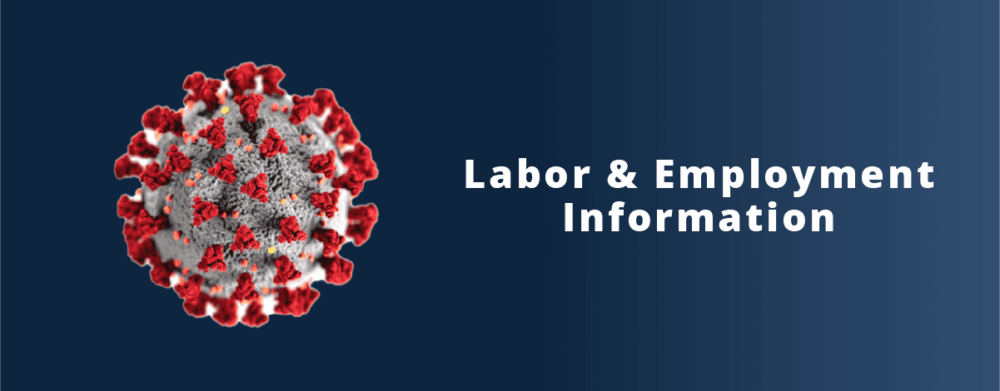It is common knowledge that wearing a mask helps stop the spread of COVID-19. But what if your job requires you to come into close contact with people who cannot wear a mask? That is the scary reality for many of those working in the dental industry.
If you are a dental healthcare professional (DHCP) such as a dental assistant or hygienist, you are accustomed to being on the receiving end of a patient’s aerosols. Prior to COVID-19, a simple face shield would have been all the protection you needed. However, in the age of COVID-19, dental offices must adhere to strict safety protocols. McOmber McOmber & Luber, P.C. is following this closely and has the latest information on what steps dental offices should be taking to protect you in the workplace.
Personal Protective Equipment (PPE)
The Occupational Safety and Health Administration (OSHA) requires your employer to provide you with appropriate PPE. 29 CFR 1910 Subpart I. Your employer must provide training on when to use PPE, what PPE is necessary, how to properly use PPE, and how to properly dispose, disinfect or maintain PPE.
Masks, Eye Protection and Gowns
If you work in a community where there is minimal transmission, the Centers for Disease Control and Prevention (CDC) recommends a surgical mask, eye protection such as goggles or a face shield, a gown and gloves during procedures where there will be splashes or sprays.
If you are in in a community with moderate or substantial transmission rates, CDC recommends you wear this PPE at all times. If you are working on someone that will cause splashes and sprays, CDC recommends that you wear a N95 respirator or a respirator with a higher protection level. Respirators should be fit-tested, and staff needs to be trained on proper use. 29 CFR 1910.134.
Screening Dental Employees for COVID-19
Your employer should be conducting health screenings and monitoring employees on a daily basis. This includes temperature checks and asking about COVID-19 symptoms. If DHCP are ill, your employer should remind them to stay home and they should not be penalized for doing so. Sick leave policies should be flexible, non-punitive and consistent with public health guidance.
Return to Work
If I Was Exposed to COVID-19, What Should I Do?
Your course of action depends on whether or not you are vaccinated, the level of community transmission at the time of your exposure and if you are immunocompromised. Generally, if you are fully vaccinated and you are not showing any COVID symptoms, you do not need to quarantine or be excluded from work. However, the New Jersey Department of Health (NJDOH) recommends you get tested and continue to monitor for COVID symptoms for 14 days following exposure.
If you are NOT vaccinated and you have been exposed, the NJDOH recommends that you be excluded from work for 14 days from the date of last contact. If this is the case, you should inquire about earned sick leave, workers’ compensation, and temporary disability insurance.
If you are a DHCP and have a suspected or confirmed case of COVID-19 with mild to moderate illness, you can return to work when it is within 10 days since your symptoms first appeared, at least 24 hours have passed since your last fever, and your symptoms have improved.
Protecting Staff by Limiting Procedures and Visitors
Dental healthcare providers require close physical contact with patients. It is the nature of the job. Nevertheless, your employer can take steps to minimize your exposure. For example, physical distancing is important to minimize risk. This can be achieved by limiting the number of people in the waiting rooms and arranging seating 6 feet apart, reducing the number of dental appointments per day, limiting visitors to the dental facility and implementing telemedicine calls when possible. Your employer should also consider a 15-minute interval between patients so that there is time for aerosols to settle and be cleaned from surfaces.
Reporting Your Employer and Retaliation
If you believe your employer is not following proper safety measures, you can file a complaint with the New Jersey Department of Labor and Workforce Development (DOLW) and OSHA. The State has also set up a COVID-19 Information Hub that allows you to file a complaint for COVID-19 violations. You can find that form here.
Your employer cannot retaliate against you for filing a complaint pursuant to the New Jersey’s Conscientious Employee Protection Act (CEPA) and other state and federal laws.
Dental hygienists and assistants are at great risk for contracting COVID-19 because they are in close contact with many patients every day. That is why it is so important that employers follow state and federal safety requirements meant to protect you in the workplace. If you are concerned that your employer is not doing enough to keep you safe and/or you have expressed your concerns and fear retaliation, McOmber McOmber & Luber P.C. has experienced lawyers to help you. Please call our offices or contact us online to find out more.

